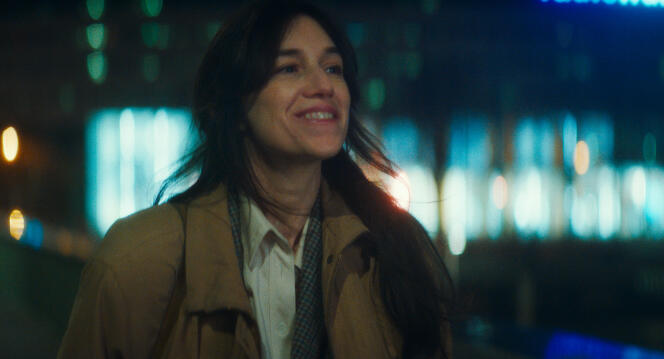
In Passengers of the nightby Mikhaël Hers, Charlotte Gainsbourg plays a mother of two teenagers who has just been left by her husband in the 1980s. to the actress.
How did you immerse yourself in those years that were those of your adolescence?
The decor of the apartment, mounted on the stage of the Zénith de Caen, was teeming with small details, such as K7 VHS, Studio Magazine and the Pariscope. At that time, I bought it every week, I circled the films I wanted to see, my relationship with cinema was born like that. And then, we didn’t have cell phones, our parents were maybe a little worried, but they still expected to see us again in the evening. When I went out, I never had a return time. Today, I purposely do not be very up to date with my emails, not to answer tit for tat, to keep a little of that freedom.
How did you approach the character of Elisabeth?
Elisabeth doesn’t come from a very popular background, but neither from a wealthy or intellectual background, I didn’t have many references. When I think of a woman from the 1980s, I imagine my mother to be feminine and very fulfilled… However, Elisabeth has already aged a bit, she doesn’t work, isn’t modern and that’s what interested me. I loved the way Mikhaël Hers focused on specific gestures like preparing breakfast while smoking a cigarette. I worked with a coach like I’ve been doing since I’m Not There, by Todd Haynes, in 2007. At that time, I had an American theater teacher, who has since died, who opened doors for me, opened up avenues for reflection without ever fixing things. Arnaud Desplechin writes this way. I read two of his scenarios and, each time, there is this mention: perhaps the character could say it like that, but he could also say it like that.
Elisabeth experiences the departure of her children, a theme that echoes your documentary “Jane par Charlotte” (2021) in which you say: “Why do we learn to live without our parents? I don’t want to free myself. » Is this a question that has affected you for a long time?
Yes, since my sister Kate [Barry] told me, when her son was old enough to leave home: “We are not prepared for this. Being pregnant, childbirth, the baby, the first teeth, adolescence, yes, but afterwards, nothing, we don’t talk about it. It’s so complicated, we are torn between the desire for them to find their way and the desire to hold them back for the selfish pleasure of not being without them. And then we start to age. We must therefore doubly accommodate the situation. We were lucky, Yvan [Attal] and me, to have a family life that continues, but, after experiencing the departure of the two eldest, the three of us found ourselves like idiots, saying to ourselves: “That’s how it is. And then, one day, if we’re lucky enough to still be together, eight years from now, we’ll find ourselves face to face, life is weird.
You have 42.61% of this article left to read. The following is for subscribers only.
–


